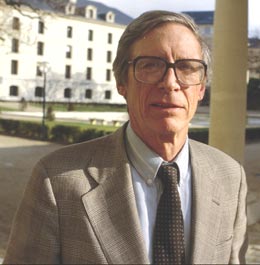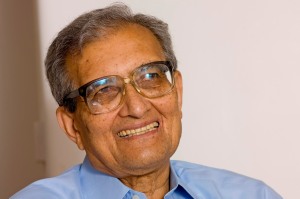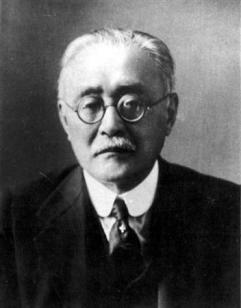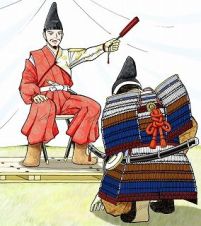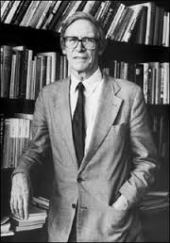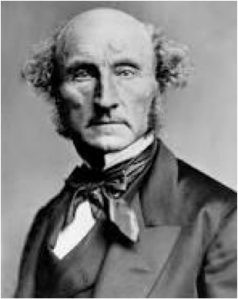Tyleisha, Haruna, and Killaq made this. As Andrew says, it is “soooo cool”
Christopher Macleod and The Crimes Against Humanity:
Por Alfonzo
Christopher Macleod is a Lector in Political Philosophy in the Department of Politics, Philosophy and Religion at the University of Lancaster. Before take that position, he was a Teaching Fellow in Political Theory at the University of Edinburgh.
HUMANITY ACCORD MACLEOD:
“The principal difficulty in interpreting the term ‘crime against humanity (CAH)’ is the ambiguity of the word ‘humanity’. This word, of course, has two distinct meanings. It can be used to refer to the species to which we all belong: the human race, all human beings, the block of all humans. Yet it can also be used to refer to that thing which is common to the class of all persons, in virtue of which they are human: humane-ness, human-ness, within the spirit of being human. For the sake of clarity, let us label the first sense ‘humankind’ and the second sense ‘human-nature’.”
In the way exploring to Crimes Against Humanity, he had to think from different view points. The first one at “how we can think about the crime?”, from he made the first definitions about Crimes Against Humanity (CAH):
“CAH1: an action is a crime against humanity if and only if it is an action contrary to the human-nature of the perpetrator.”
In CAH1, the wrong of the crime is located within the criminal’s failing to meet up to his own human nature. An act is here thought be inhumane because the perpetrator behaves in a way that ignores that he is himself a human being: his action is sub-human. There is a symmetrical wrong to inhumanity, namely dehumanization, which generates a close variant on CAH1. Whereas with acts inhumane it is the criminal’s own human-nature which has been disregarded in his performance of the action, with acts dehumanizing it is that of the victim. This sort of an action, the regarding of others’ status as humans, is embodied in CAH2.
“CAH2: An action is a crime if and only if targets the human-nature of the victims”
Completing the triad of possibilities as to where the neglect of human-nature must occurfor an action to be a crime against humanity, a meaning can be found referring not to the criminal or the victim, but to the onlookers.
“CAH3: an action is a crime against humanity if, in ignoring it, we would ourselves be acting contrary to human-nature.”
Under CAH3, the claim is that even overlookingthe crime is unhuman. Some crimes, the claim goes, are so extreme that they cannot under any circumstances be ignored by the outside world. To my knowledge, this has never been proposed directly as a definition of the crime, though it is instructively similar to another possible definition, which seems to capture a very similar thought and which has been taken seriously by many. In examining this definition, we turn to those interpretations which invoke the second sense of ‘humanity’ given above, to human-kind rather than human-nature. Here, as in CAH3, it is the onlookers upon the crime who are used to define it, though emphasis is now given to the fact that they constitute the species as a whole.
“CAH4: an action is a crime against humanity if and only if it is an action that shocks the conscience of human-kind.”
This meaning was called upon by Hartley Shawcross, the Chief Prosecutor for the UK at Nuremberg, who claimed that the individual ‘is not disentitled to the protection of mankind when the state tramples upon his rights in a manner which outrages the conscience of mankind’. The idea has been repeated by many, and a similar meaning is to be found in Black’s Law Dictionary. Bassiouni indicates that at least one aspect of a crime against humanity is that it will ‘shock the conscience of humanity’. Bassiouni also draws on another meaning, writing that ‘certain crimes affect the interests of the world community as a whole because they threaten the peace and security of humankind’. We will label this definition CAH5.
“CAH5: an action is a crime against humanity if and only if it is a crime that endangers the public order of human-kind.”
Crimes Against Humanity, endorses CAH5 as a central understanding, arguing that crimes against humanity are ‘serious harm to the international community’. Offering a minimalist Hobbesian account, he attempts to derive international norms to protect against the possibility that states would be in a state of constant warfare among each other that would resemble Hobbes’s “war of all against all”’. As individual criminal acts destabilize the order on which local public life depends, so international crimes destabilize the international order. The ‘international harm principle’ is necessary as an analogue of local norms of justice.
“CAH6: an action is a crime against humanity if and only if it is a crime that diminishes human-kind.”
This is not, I think, the sense in which crimes against humanity are usually taken to diminish human-kind, for thissense involves a change occurring as a result of the crime. A stronger and more interesting sense takes the sort of diminishment referred to in CAH6 as a blotting of the record of humanity, or as a secular parallel of the acquisition and transmission of original sin: a stain that all of us, even those with no substantive linkage with the atrocities, bear. In committing a crime against humanity, a fellow human being does something that tarnishes us all.
“CAH7: an action is a crime against humanity if and only if it is a crime that damages human-kind.”
CAH7 claims that when thinking about crimes against humanity, the victim is properly conceived to be the whole of human-kind, rather than individual persons. A crime against humanity is defined to be, in a very literal sense, an offence committed against humanity as such.
References:
“Towards a Philosophical Account of Crimes Against Humanity”
http://ejil.oxfordjournals.org/content/21/2/281.full.pdf
Conctacs with Christopher Macleod:
Email: christopher.macleod@lancaster.ac.uk
Tel: +44 1524 594280
What did Marx think of justice?
Marx deemed capitalism exploitative and saw a need for change, but he did not call the system unjust. Determining his thoughts on the matter largely depend on whether you look to his works as a young man largely founded upon liberalism, or to his later works.
–> Early Marx: critiqued capitalism as game with rules. Though the game is itself is exploitative, actions which abide by those rules are by definition, “just”.
–> Later Marx rejects the idea of justice. He believes that philosophy is a result of the economic system in place, and justice is a part of this superstructure (philosophy) created by capitalism. In communism, there is no need for a concept of justice or injustice, since it is a perfect material practice without contradictions.
Justice of Japanese Philosophy
By Haruna
I’m going to look at how Japanese philosophy and culture shaped. As the most characteristic philosophy in Japan, I researched about Bushido and Shame culture.
Nitobe Inazo is a Japanese Ethical philosopher, agricultural economist, author, politician and educator, born in 1862 and died in 1933. He was also the founding director of the International Committee on Intellectual Cooperation. He published a book called “Bushido: The soul of Japan” (1899). He started writing this book to let the world know how Japanese people learn morals or ethics not relying on the education of religious. He found that Bushido is essentially building our moral obligation and ethical thinking.
Bushido is found in 17th century in the Edo era, which is the ethical principle Bushi (=Samurai) believed in. It’s based on the idea of Buddhism, Shinto, and Confucianism. The basic structure of Bushido is also from the Feudal system in 12c, the Kamakura era. But how could Bushido educate us the ethical thinking?
Before we go think of this question, I want to explain about the feudal system. Feudal system is the relationship between a master and warriors. Warriors sacrificed their lives to the master instead of they can get reward consisting money and the land. Although it seems like frivolity relation, it actually made a solid relation. From that, we started to respect any kind of human relationships and value other people’s perspective towards their behavior.
This caused “Shame culture,” (on the other hand, western countries have “Guilt culture“) according to “The Chrysanthemum and the Sword: Patterns of Japanese Culture” written by Ruth Benedict, an American anthropologist 1887 to 1948. 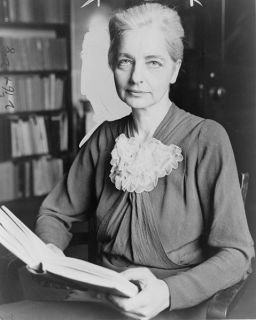
Shame culture is a culture in which conformity of behavior is maintained through the individual’s fear of being shamed in front of people. As you learned, this is because people value other people’s perspective, we were afraid of being judged and the collapse of human relationship. And in Bushido, we respected and regarded them as just.
- Loyalty
- Honor
- Pride
- courage for suicide
Thus, when people were pushed on the Shame in the public, it was thought as losing loyalty, honor and pride. Consequently people chose committing suicide to protect the just, this specific suicide in those days called “Seppuku.” (Seppuku: Ritual suicide by disembowelment carried out by samurai. Literally means “stomach cutting.” The samurai committing seppuku would shove a dagger into their stomach while another samurai acted as their second by lopping off their head.)
The importance of Japanese philosophy is not suicide. Suicide is the only way to prove their loyalty to the master, to protect honor and pride, to show their moral obligation to the society. We can conclude that people in the Edo era respect Bushido (and potentially shaped shame culture) which enforce more precious human relationships. And Inazo Nitobe argues that Bushido would probably be gone though, however we would get westernized, the soul of Bushi never vanish from our culture.
Bibliography
http://www.doceo.co.uk/background/shame_guilt.htm
http://www.gutenberg.org/files/12096/12096-h/12096-h.htm
http://www.facts-about-japan.com/feudal-japan.html
the justice of Bushido: http://www.sacred-texts.com/shi/bsd/bsd08.htm
John Rawls
John Rawls is a contemporary, American Philosopher born in 1921 and died in 2002.
John Rawls was a leading figure in political philosophy therefore I don’t suggest talking about Justice without mentioning Rawls’ theories.
Central to Rawls’ theory of justice are the concepts of fairness and equality from behind what he calls the “original position”.
Rawls believed that the social contract must be drawn up from an original position in which everyone decides on the rules for society from behind a veil of ignorance.
The “Veil of ignorance” is an element of the way people can establish society. Essentially, it means that if an individual had no idea as to where they would fit in a social or political order, they would make decisions with the least benefitted individuals in mind. In other words, everyone would be blind of their social status.
From this original position, Rawls believes that two principles of justice arise. The first is the liberty principle, the idea that all people should have access to their basic liberties — freedom of speech, political freedoms, personal property and freedom from arbitrary arrest.
The second principle, the difference principle, states that inequalities in social and economic distribution must be arranged so that they provide the greatest benefit to those with the least advantage. That is, if goods are being distributed in a society, those who need them most should be given priority to receive them.
Rawls claims that we must arrive at this conclusion from the original position because we do not want factors beyond our control to dictate the opportunities we have in life. If we are born at a disadvantage, into a poor family, for example, we must be given the opportunity to overcome it in a way that puts us on equal ground with those who did not have to overcome the same obstacles.
Justice in Afghanistan
Afghanistan is a country, which located in central Asia, and is a part of Middle East. The official religion in Afghanistan is Islam. There were wars in Afghanistan more than 3 decades.
The effect of war: waste of Millions of dollars in questionable way, poverty, poor sanitation, lack of access to health care, and also include of murder, torture, rape.
1978- 2001 war began . Since 2002 there were lots of country that help Afghanistan for receiving justice and civil right. But there are some people who against justice, for example they are trying to not let the women to have human right even force them to do what ever they wanted to do, like as slave. The reason is, confusion in religion, those people are called Taliban. They are a big problem in Afghanistan for achieving justices.Just war theory
Augustine
354- 430. He is Christian theologian (rational study of concept of God) and philosopher.
Augustine idea that have according to justice
1.If you even have good reason to attack, but you need to think about sending young men to war or to die. Human life is too precious, too sacred to waste
2.So now the leaders are have the idea of the God who are responsible of what are they doing to the citizens
“For Augustine, war was a logical extension of the act of governance”
John Stuart Mill and David Luban on Justice and Crimes Against Humanity
John Stuart Mill on Justice
John Stuart Mill (1806 – 1873) was a British philosopher, economist, moral and political theorist, and administrator, and one of the most influential English-speaking philosopher of the nineteenth century. In order to learn about his approach to justice, I read chapter 5 of his book Utilitarianism, a philosophical defense of utilitarianism in ethics. The chapter is titled “Of the Connection between Justice and Utility.”
In this chapter, Mill begins by acknowledging his opposition, which claims that utilitarianism is incompatible with justice. Utilitarianism can imply that we should treat people unfairly at times, and in doing so violate their moral rights. It extends the acceptable choices that one makes for his/her own life to situations of conflict of interest among people.
In this chapter, J. S. Mill examines this conflict between utilitarianism and justice. He sees the problem as being that the sentiment of justice feels more compelling and morally authoritative than the sentiment of benevolence associated to utilitarianism. Mill thinks that ‘people are in general willing enough to allow that objectively the dictates of justice coincide with a part of the field of general expediency.” Still, the “subjective mental feeling of justice” is usually more imperative in its demands that the feeling “which commonly attaches to simple expediency”.
Mill looks for a common quality that unites all modes of conduct and policy we deem just. It is thought normally to be unjust to (a) violate someone’s legal rights, or those that ought to be his rights, (b) not to treat people as they deserve, (c) to break faith with anyone, (d) to be partial in those situations where impartiality is required, and (d) to treat people unequally, though people disagree greatly on what kind of equality is morally required.
Mill looks at the etymology of the word “justice”, and finds that the idea of justice is tied to the idea of conformity to law, at least law as it ought to be, and this is the common thread that he draws between different modes of injustice.
We consider something to be unjust if we think law should not enforce it, and that it is fit for punishment, either by law, public opinion, or conscience. However, this is not a specific idea of injustice but a more general idea morality. Mill states that an act that is morally wrong is one that ought to be punished somehow.
To define injustice, Mill talks about how a particular person or persons may be wronged. He states, “Justice implies something which it is not only right to do, and wrong not to do, but which some individual person can claim from us as his moral right” (p. 49). Justice, Mill argues, should not have independent moral authority against general welfare. The following is a summary of his points supporting this argument:
1. Justice is a primitive instinct. Mill says that “the sentiment itself does not arise from anything which would commonly or correctly be termed an idea of expediency, but that, though the sentiment does not, whatever is moral in it does” (p. 50). An example that he provides is that the desire to punish someone who harms a person grows out of two primitive sentiments–the instinct of self-defense and the feeling of sympathy. We want to harm those we see as threatening to harm us and those with whom we sympathize. There isn’t anything moral in these instincts, which Mill identifies with the principle of utility.
2. Justice is ambiguous. Injustice occurs when someone’s rights are violated. When someone has a right to something, he has “a valid claim on society to defend him in the possession of it” (p. 2). But there may be many conflicting rights claims, especially when considering controversial issues. For example, Mill brings up the point that some say punishment is just only when done to benefit the person punished; others say this would be wrong and that punishment is acceptable only when needed to protect the legitimate interests of other people, others say punishment is always unjust. Some say the punishment should be exactly proportioned or matched to the severity of the crime; others say that the only good justification for punishment is that it is necessary to deter that criminal or others from committing further crimes. Mill says only utility can reasonably resolve these conflicting claims. The rights claim that is valid is the one protection of which best promotes the general happiness.
3. Part of the explanation of the strength of the feeling of mortality, that we should do what is just is that, in general, this moral code promotes utility in matters that are important to peoples’ lives. Justice may not be a moral standard distinct from utility, but where justice that coincide with utilitarianism is “the chief part, and incomparably the most sacred and binding part, of all morality” (p. 58). Justice and utility overlap on rules forbidding people to hurt one another or interfere with their freedom without good reason, such as through torture. Of course these rules are not absolute, and they allow for unusual circumstances or cases when general happiness is best served by making an exception.
4. The core of justice is implied by the principle of utility. Treating other “according to his deserts, returning good for good, as well as repressing evil by evil, ” requires us to “treat all equally well . . .who have deserved equally well of us” and requires society to “treat all equally well who have deserved equally well of it.” This is, according to Mill, “the highest abstract standard of social and distributive justice.” This rule is derived from utilitarian morals, which requires that each person’s happiness “counts equally in calculations to determine social policy as every other person’s.” Norms of justice as implied by the utilitarian morality stipulate that everyone has an equal claim to happiness, and the means to happiness.
Even if these considerations of justice may not determine the morally right answer, they might rule out some wrong answers, and the utilitarian inclination might be among these. In order to establish equality in utilitarianism, there must be equal consideration when determining the right policy, and nobody’s interests and desires may be discounted. However, if the aim is to maximize the sum of utility, this practice may be compatible with extreme inequality. For some, equal consideration may not seem equal enough.
Mill suggests a proposal about what the utilitarian criterion of right conduct is. This is that a wrong act is one that is fit to be punished or ought to be punished, and a utilitarian account of wrong acts then stipulates that these acts that ought to be punished are the ones punishing which would maximize utility. A right act is an act that would be wrong to not do. An act is neither right nor wrong if it is not wrong to do it and not wrong to not do it either J
David Luban on Justice and Crimes Against Humanity
David Luban is a Professor of Law and Philosophy at Georgetown University. He has also directed Georgetown’s center on National Security and Law. He has published many works, such as Legal Ethics and Human Dignity (Cambridge 2007) and Torture, Power, and Law (Cambridge 2013), as well several edited anthologies on legal ethics and textbooks on international criminal law and on legal ethics. His writing includes more than 150 articles on international criminal law, moral and legal philosophy, professional ethics, law and literature, just war theory, and issues surrounding the U.S. “war on terrorism.” He has testified before both houses of the U.S. Congress on the torture debate.
In his paper Liberalism, Torture, and the Ticking Bomb, David Luban talks about the nature of torture in relation to liberalism, and whether or not its use is justified. He begins by stating, “Torture used to be incompatible with American values”. He then brings up the point that the Bill of Rights forbids cruel and usual punishment, which includes all forms of corporal punishment except prison and death by methods deemed painless. He mentions the Senates ratification of the Convention Against Torture, anti-torture legislation that Congress has enacted, and America’s historical condemnation of states that utilize torture, and our practice of granting asylum or refuge to those who fear it.
He then moves to September 11. He described a quiz that was given to a university ethics class less than a week after the event, asking what the proper US response to the terrorist attacks would be: A execute perpetrators on sight, B bring them back for trial in the US, C subject perpetrators to an international tribunal, or D torture and interrogate those involved. A majority of the students chose A and D: execute on sight and torture them. He talks about the increased discussion of torture after 9/11, and the press reports about FBI harsh interrogation tactics, and generally the extent to which the supposed American abhorrence to torture had been shaken.
Luban defines liberalism in the context of the US being independent of progressive or conservative ideology, including conservatives as well as progressives so long as they believe in “limited government and the importance of human dignity and individual rights.” He argues that liberal abhorrence towards torture may only be “skin deep”. While the liberal reverence for individual rights makes torture morally unacceptable, these same liberal ideas can justify interrogational torte in cases of extreme danger.
The example the he brings up is that of the use of nonlethal torture in a ticking-bomb case, in which it would be justified. However, he points out that the ticking-bomb stories make the case for the use of torture as an emergency exception, but use institutions based on these exceptional cases to justify institutionalized practices and procedures of torture.
He discusses how there has been no taboo on torture in military and juridical contexts throughout most of human history, but it is in today’s society that cruelty is “put first”, and regarded as one of the most vicious of all vices. However, he argues that torture and cruelty are incompatible with liberalism, and seeks to show this through establishing that torturing terrorist for information is not done out of cruelty.
The difference between suffering in collateral damage during the Afghan and Iraq wars, the examples Luban gives, seem to be less immoral and illiberal than torture because of the relationship between torturer and victim. The self-conscious aim of torture to cause victims to be isolated, overwhelmed, terrorized and humiliated stripes away qualities of human dignity that liberalism prizes. Luban argues that the relationship between the torturer and victim of the torture is a microcosm of the highest level of intensity of the “tyrannical political relationships that liberalism hates the most.” Luban argues that there are five aims of torture: victor’s pleasure, terror, punishment, extracting confessions and gathering intelligence.
Liberalism, Luban says, incorporates “a vision of engaged, active human beings possessing an inherent dignity regardless of their social station.” Victims subjected to torture are in every aspect opposite to this vision, reduced, terrified and humiliated instead of engaged, active and dignified. The victor’s pleasure in torture is a living embodiment of liberals’ worst nightmares of tyrannical rulers who take pleasure from degradation of those who are subject to their will.
One aim torture is to terrorize people into submission, for reputation and intimidation for enemies. this practice of subduing and tyrannizing people is again fundamentally hostile to liberals’ political philosophy.
Punishment is another aim of torture. Luban talks about how the 8th Amendment to the US Constitution prohibits cruel and unusual punishments, rot cruelty more generally. He says that cruel and unusual punishments would be contrary to justice, and to the nature of the social contract, as suppressing citizens in the manner would contradict liberal understanding of the ends of society. Luban argues that the abolition of punitive torture had little to do with increased humanitarianism, but with the change in distribution of crime in Western Europe, how property crimes began to eclipse crimes of passion as social problems. This led to milder systems of punishment. Torture, Luban argues, was “a symbolic assertion of the absolute sovereignty whose personally prerogatives had been affronted by crime.” With the growth of liberal democracy, this ideology became irrelevant as the people had the rule, and the responsibility of punishment, whether punitive torture or otherwise, therefore fell on them.
Another aim of torture is extracting confessions.When it was accepted that the criminal justice system could base guilty verdicts on evidence that rationally established facts, rather than through confession, the need for torture to convict criminals was no longer present. Furthermore, the “only crimes for which the primary evidence is the perpetrator’s own words are crimes of heretical or seditious belief – and liberalism rejects the criminalization of belief.”
Based on these arguments, Luban concludes that the four illiberal motives for torture are victor’s pleasure, terror, punishment, and extracting confessions. The last aim of torture that he discusses, and that he argues might conceivably be liberally acceptable is torture as a technique of intelligence gathering from captive who will not talk. This aim is the most relevant and important in the context of the FBI 9/11 interrogation techniques report. The key difference between this aim and that of extracting confessions is that the later is focused on ratifying the past for purposes of retribution, while the former is forward-looking and aims to gain information to prevent future evils such as terrorist attacks. This rationalizes the motivation for torture, and can almost make it seem heroic if it is done to save lives. However, Luban calls this a “dangerous delusion”. He believes that the ticking bomb is the wrong thing to think about, and that it is proffered against liberals who believe win absolute prohibition against torture in order to force them to admit that torture is justified in a least this one situation. Once the prohibitionist concedes this, opposition to torture is no longer based on principle, and it is only a question of what conditions justify torture.
Luban discusses a case in 1995 in which an al Qaeda plot to bomb eleven US airliners and assassinate the Pope was thwarted by information tortured out of a Pakistani bomb-maker by the Philippine police. Luban argues that one cannot use the argument atht preventing the al Qaeda track justified the decision to torture, as at the moment he decision was made, no one knew about eh al Qaeda attack; it was based solely on word of threats that the police as heard – rumors. Luban argues that the ticking time bomb case is the wrong question to ask as the conditions of knowing for sure that there is a bomb, and that officials know it and know they have the man who planted it will seldom be met. He instead asks how likely does it have to be that a victim of torture know something important? And, how long should the victim be tortured before officials accept that he or she knows nothing?
Luban brings up the reality of torture in the US, referring to the group of lawyers in President George W. Bush’s administrate who wrote the secret memoranda that came close to legitimizing torture for interrogate purposes. He talks about the two Office of Legal Counsel (OLC) memos written in early 2002, concluded that the Geneva Conventions do not cover al Qaeda or Taliban captives. He also recalls President Bush’s February 7, 2002 memo asserting that “the prisoners would be treated consistently with Geneva to the extent appropriate and consistent with military necessity,” a large loophole for intelligence-gathering he claims.
Luban concludes that the liberal ideology of torture, which assumes that torture can be neatly categorized as moral or justified in the exceptional ticking-bomb cases and therefore removed from cruelty and tyranny, is a dangerous delusion.
This is especially important, he notes, in the contexts of an endless war on terror, a permanent emergency in which the White House insists that its “emergency powers rise above the limiting power of satires and treaties.”
In his paper A Theory of Crimes Against Humanity, Luban defines crimes against humanity in relation to justice. He first distinguishes between different definitions of “humanity” – the first is the abstract property, the quality of being human, while the second refers to humankind, the set of individuals. Crimes Against Humanity, he states, are “not committed only against the victim, but primarily against the community whose law is violated.” He brings up Mary Ann Glendon’s explication of Crimes Against Humanity at the Nuremberg Trials. She states that to “persecute, oppress, or do violence to individuals or minorities on political, racial, or religious grounds in connection with such a war, or to exterminate, enslave, or deport civilian populations, was a crime against humanity.” Luban says “crimes against humanity are simultaneously offenses against humankind and injuries to humanness.” They are so “universally odious”, he argues, because they injure a fundamental aspect of human being, that of our character as political animals. We are creatures compelled to live socially by nature, but we cannot do so without artificial political organization that “inevitably poses threats to our well-being, and, at the limit, to our very survival.” The worst of these threats, he says, are represented by crimes against humanity. Luban essentially proposes that 1) “humanity” in “crimes against humanity” refers to our political character and 2) that these crimes pose a universal threat that all humankind has interest in repressing. He expresses how all the statutory “definitions of crimes against humanity” have in common is that they specify that these crimes are severe persecution inflicted by a state, or a state-like organization, on a civilian population or groups under their control as part of an organized plan. In the case of the interrogation and torture practices on the part of the CIA, the state would be the US, and the group or population would be anyone suspected of association with the al-Qaeda and with Islam.
Resources and Citations:
Luban, David, “A Theory of Crimes Against Humanity” (2004). Georgetown Law Faculty Publications and Other Works. Paper 146. http://scholarship.law.georgetown.edu/facpub/146
Read here: http://scholarship.law.georgetown.edu/facpub/146
Luban, David, “Liberalism, Torture, and the Ticking Bomb” (2005). Georgetown Law Faculty Publications and Other Works. Paper 148. http://scholarship.law.georgetown.edu/facpub/148
Read here: http://scholarship.law.georgetown.edu/facpub/148
Mill, John Stuart (1906). Utilitarianism. Chicago, IL: University of Chicago Press.
Read here: http://www.marxists.org/reference/archive/mill-john-stuart/1863/utility/ch05.htm
Plato on Justice and Slavery
Plato was an Ancient Greek philosopher who was born on 399 BCE. His views on justice were significantly different from other philosophers at the time, because he felt that justice was an internal concept, not the external principle that other philosophers considered it to be. According to Plato, justice is a natural human virtue that makes a person good and “self consistent”1. This concept of justice permits the assumption that for Plato, justice and morality are almost interchangeable; because his definition of justice could just as easily be a definition for morality.
For an individual to act in a just manner does not necessarily require them to conform to all legislation and laws of the state. A just individual is one whose soul guides them to work toward “a vision of the Good”2 (a morally good society) and who uses reason to direct their passion and ambition towards this vision. Only when this occurs, can a person’s soul be “harmonious, strong, beautiful and healthy”2. For an action to be considered just, they must fall in line with these stipulations. Essentially, this means that how just you are depends on your internal goodness, not how well you conform to societal norms or laws.
The reason this is such a radical view on justice is because it gives permission to break laws if one determines them unjust. It begs the question as to whether a just person should to refrain from lying, stealing or killing; simply because those actions are prohibited in our society. Plato counters this objection by saying that a person who was truly just, and had a “healthy harmonious soul”2 would not have the need to lie, steal or kill.
When studying Plato it is also important to keep in mind the basic principles of ancient justice, which Plato subscribe to. Many views on ancient justice rest on the foundation that treating equals equally and unequals unequally is a just action in itself. As a common view at the time was that people naturally had specific status, which could not be altered with. The way you treat others would be affected as to whether they were your equal or your unequal.
When examining Plato’s view on justice one should also consider the fact that the Athenian democracy was on the verge of ruin while he was developing his philosophies, and that many of his views surrounding justice are based on “Utopian Ideals”1; or how he thought society should be, compared to how it actually was. According to Plato, in the ideal society justice would have to “reign supreme”1.
Plato had a very specific view on what the ideal state should be. In Plato’s opinion, philosopher kings, who were also members the highest social class, would rule the just state. These kings would have the support of soldiers, who would keep the common people in line, and allow the philosopher kings absolute rule. These philosopher kings would be the only ones in society who could properly determine what was just and what was unjust; so their views on justice should be followed. Plato was of the opinion that every state had a destination, and that this destination should be justice.
Because of these views, one might assume that Plato would oppose slavery, because we in this modern society consider slavery to be inherently evil. But to Plato, slavery was natural, as it was natural for the superior to rule over the inferior. Plato saw what he considered evidence of people’s inherent inferiority, or superiority in nature, and to him this justified slavery.
In fact, in his book “Gorgias” Plato says:
“Nature herself intimates that it is just for the better to have more than the worse, the more powerful than the weaker; and in many ways she shows, among men as well as among animals, and indeed among whole cities and races, that justice consists in the superior ruling over and having more than the inferior” 3
And because slavery in ancient Athens doesn’t’ appear to be any less brutal than the slavery that occurred in Bermuda, we can assume that Plato would also have supported it; especially because slavery in Bermuda was based off of the same principles of superiority and inferiority that occurred in Ancient Athens.
While Plato supports slavery, it was only because he saw no injustice in it; because of the slaves “inherent inferiority”. In Plato’s perspective, slaves were essential in the running of a state, and there were no moral conflicts towards owning slaves. Following this line of thinking, it is only logical that Plato would support slavery. However; all of Plato’s views on justice point towards acting in a way that is morally just. So, one could easily apply those views and determine slavery is wrong. But you would have to discount Plato’s apparent supremicism and blatant support of slavery to do so.
1 http://voices.yahoo.com/platos-theory-justice-4788502.html?cat=37
2 http://plato.stanford.edu/entries/justice-virtue/
3 www.utexas.edu/courses/ancientgreece/Additional%20texts/callicles.htm
Aldo Leopold – Land Ethic
Hey guys! So for our project we studied the philosophical background of different constitutions, and I looked at Aldo Leopold and how he influenced Ecuador’s constitution. I read through Ecuador’s constitution and found it really impressive that it includes the rights of nature. So, even though you probably won’t need to know about Ecuador’s constitution, I decided to include a little bit about it because I thought you might find it impressive too (you know, cause here at Pearson we love sustainability and all those shenanigans)! I know Zoë looked at Leopold too, so at the risk of being redundant, here it is!
Over the years, our concept of justice has shifted. As we have grown to include all humans in our concept of justice, we have begun to look outside of ourselves in order to include the environment in our view of justice. Aldo Leopold, an American philosopher, environmentalist, and author born in 1887 was the first to develop a concept he called “Land Ethic” in his major publication, A Sand County Almanac (1949). This philosophy seeks to guide our human action when making changes to the land. In his own words, “The land ethic simply enlarges the boundaries of the community to include soils, waters, plants, and animals, or collectively: the land…[A] land ethic changes the role of Homo sapiens from conqueror of the land-community to plain member and citizen of it. It implies respect for his fellow-members, and also respect for the community as such.” Leopold was a strong influence in the creation of Ecuador’s Constitution, the first ever constitution to include rights for nature, a concept they call Sumak Kawsay in Quechua (yes, the language they sang in at One World!), a language indigenous to the country. The constitution has the rights of nature mentioned as a recurring theme woven throughout the text, as well as the entirety of Chapter Two to biodiversity and natural resources, including sections in its constitution outlining the rights of nature, the soil, water, ecological systems, and natural resources, the Ecuadorian Constitution has come to express a similar conception of justice as Leopold. For example, Article 277 outlines the “general duties of the state in order to achieve the good way of living” to be first and foremost “To guarantee the rights of people, communities, and nature.” Article 397 even gives legal rights to the environment: “In case of environmental damages, the State shall act immediately and with a subsidiary approach to guarantee the health and restoration of ecosystems. In addition to the corresponding sanction, the State shall file against the operator of the activity that produced the damage proceedings for the obligations entailing integral reparation, under the conditions and on the basis of the procedures provided for by law.”
Because we are all very busy people, here is a more bite size format:
Bio:
Aldo Leopold (1887-1948)
American
Professor, Author, Nature Writer, Scientist, Environmentalist, Ecologist, Forester… (you get the gist)
Major Publication: A Sand County Almanac (1949)

Doesn’t he look like a nice guy squinting into the sunlight?
Quotes:
“A thing is right when it tends to preserve the integrity, stability, and beauty of the biotic community. It is wrong when it tends otherwise.”
“The land ethic simply enlarges the boundaries of the community to include soils, waters, plants, and animals, or collectively: the land…[A] land ethic changes the role of Homo sapiens from conqueror of the land-community to plain member and citizen of it. It implies respect for his fellow-members, and also respect for the community as such.”
Justice as:
Leopold’s conception of Justice: Land Ethic: Philosophy that seeks to guide the actions when humans use or make changes to the land.
Ecuador’s Constitution’s conception of justice: Sumak Kawsay: “Good Living”, in other words, living in harmony within communities, ourselves, and most importantly, nature – integrated into the constitution as a way of granting rights to nature, values people over profit.
If you want to check out Ecuador’s super cool constitution, here it is:http://pdba.georgetown.edu/Constitutions/Ecuador/english08.html
Also, if you want to know more about Aldo Leopold’s theories and environmental ethics, section 1.d has some good info!http://pdba.georgetown.edu/Constitutions/Ecuador/english08.html
Cotemporary View On Justice
